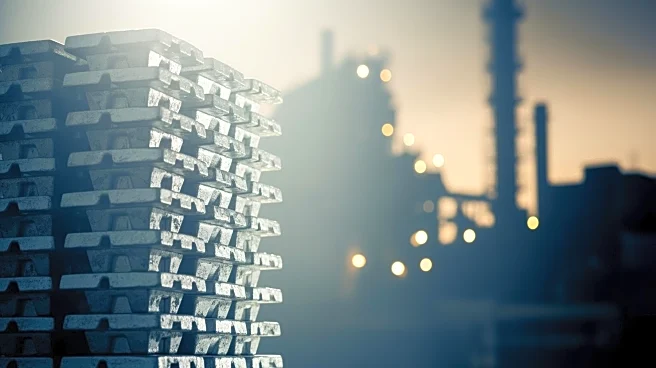What's Happening?
European aluminum importers are scrambling to secure supplies following a significant production cut at Iceland's Grundartangi smelter and ahead of the EU's Carbon Border Adjustment Mechanism (CBAM) implementation.
The smelter, owned by Century Aluminum, reduced output by two-thirds due to equipment failure, impacting supply. The CBAM, set to take effect in 2026, will impose a carbon price on aluminum imports, further complicating the market dynamics.
Why It's Important?
The combination of supply disruptions and impending carbon taxes is driving up aluminum premiums, affecting industries reliant on the metal. The situation underscores the challenges of balancing environmental policies with industrial needs. Companies may face increased costs and administrative burdens, prompting a reevaluation of supply chains and sourcing strategies. The developments highlight the broader implications of environmental regulations on global trade and industry competitiveness.
What's Next?
Importers are likely to continue front-loading aluminum to mitigate future costs associated with the CBAM. The industry may see shifts in supply chains as companies seek to minimize carbon-related expenses. The situation could prompt further discussions on the balance between environmental goals and economic impacts, influencing future policy decisions and industry practices.











